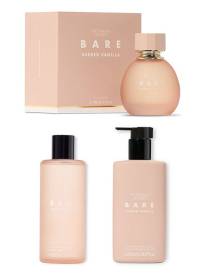Acne in Teenagers

By Sofia Segounis, Nutritionist
Acne is a skin condition that affects 85% of teenagers. It begins during the preteen and teen years, at the beginning of puberty, and usually subsides by the time we reach our 20s.
The ultimate diet plan for controlling and reducing acne is one that is hormonally balanced. This means eating the right balance of protein, carbohydrates and fat every day and at every meal. It is also important to include an abundant amount of raw fruits and vegetables in the diet to protect the skin against damage.
Food sensitivities
In addition to eating fresh, nutritious food, teens must eat food that is well tolerated. Food sensitivities are common and often go undiagnosed unless they cause a severe reaction. Foods to look out for as potential culprits are dairy, wheat, gluten, citrus foods, chocolate, eggs and high fat foods.
To pinpoint which food may be triggering an unhealthy response in the body, it is best to follow an elimination diet. Start by eliminating one food at a time until you find the specific food item that is causing the problem.
When the allergic food is detected, it is possible that you may be able to be reintroduce it on a rotational basis (e.g. once per week) after a specific time of elimination. If a reaction does occur after a re-introduction, chances are the food will have to be eliminated from the diet completely.
Water
Teens should drink plenty of fresh water. Water will ensure that skin stays hydrated and it will help excrete any toxins from the body. Avoid sugary beverages such as pop; replace them with water.
Fish oils
Fish oils act as an anti-inflammatory and help to keep skin moist. Oily fish, such as salmon, tuna and mackerel, are all excellent choices. A daily supplement of fish oils will also ensure that you receive these beneficial oils every day. Visit the Truestar Healthy Skin supplement plan for the details on other supplements that can benefit your skin.
Cleansers
Wash your face twice every day with warm water and mild soap. Do not scrub with harsh commercial exfoliates and soaps-they will dry out your skin and make the problem worse by irritating it.
References:
1. www.clearskin.net
2. http://content.health.msn.com/content/healthwise/144/35815
3. Balch, James F., Balch, Phyllis. Prescription for Nutritional Healing, 2nd ed. Avery, 1997.
www.truestarhealth.com
Acne is a skin condition that affects 85% of teenagers. It begins during the preteen and teen years, at the beginning of puberty, and usually subsides by the time we reach our 20s.
What is acne?
Acne is a breakout of pimples that may occur on the face, neck, shoulders or back. Pimples occur when the pores become clogged with oil and dead skin, resulting in bacterial growth. During puberty, the hormones are elevated, causing the skin glands to produce excess oil. Hormones are also the reason that girls tend to get breakouts around the time of their menstrual cycle.How can acne be prevented and treated?
DietThe ultimate diet plan for controlling and reducing acne is one that is hormonally balanced. This means eating the right balance of protein, carbohydrates and fat every day and at every meal. It is also important to include an abundant amount of raw fruits and vegetables in the diet to protect the skin against damage.
Food sensitivities
In addition to eating fresh, nutritious food, teens must eat food that is well tolerated. Food sensitivities are common and often go undiagnosed unless they cause a severe reaction. Foods to look out for as potential culprits are dairy, wheat, gluten, citrus foods, chocolate, eggs and high fat foods.
To pinpoint which food may be triggering an unhealthy response in the body, it is best to follow an elimination diet. Start by eliminating one food at a time until you find the specific food item that is causing the problem.
When the allergic food is detected, it is possible that you may be able to be reintroduce it on a rotational basis (e.g. once per week) after a specific time of elimination. If a reaction does occur after a re-introduction, chances are the food will have to be eliminated from the diet completely.
Water
Teens should drink plenty of fresh water. Water will ensure that skin stays hydrated and it will help excrete any toxins from the body. Avoid sugary beverages such as pop; replace them with water.
Fish oils
Fish oils act as an anti-inflammatory and help to keep skin moist. Oily fish, such as salmon, tuna and mackerel, are all excellent choices. A daily supplement of fish oils will also ensure that you receive these beneficial oils every day. Visit the Truestar Healthy Skin supplement plan for the details on other supplements that can benefit your skin.
Cleansers
Wash your face twice every day with warm water and mild soap. Do not scrub with harsh commercial exfoliates and soaps-they will dry out your skin and make the problem worse by irritating it.
References:
1. www.clearskin.net
2. http://content.health.msn.com/content/healthwise/144/35815
3. Balch, James F., Balch, Phyllis. Prescription for Nutritional Healing, 2nd ed. Avery, 1997.
www.truestarhealth.com
MORE
- Chiropractic Myths & Truths
- Are bra's good for us?
- Expert Tips to Put You in front In a Triathron
- BrainyApp
- Robert .Dipper' and Cheryl DiPierdomenico...
- Band-Aid Limited Edition Mickey Mouse Collectable
- The Complete Illustrated Guide to - Reflexology
- Be Physically Active, Enjoy Healthy Eating
- Diagnostic Breast Interventions
- One Breast Bigger Than The Other?





